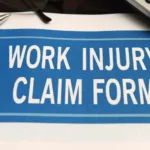For a new small business owner, insurance might seem like just another cost that your business needs to cover. It can be tempting to skip insurance, or decide that you’ll buy it down the road, when your business is more stable.
But being underinsured or uninsured puts your business at risk; if there is a disaster or a lawsuit, your company could be ruined, and your personal finances and credit could also be affected.
These 8 types of insurance should be investigated by all small business owners.
Professional Liability
Also called E&O insurance (for errors and omissions) this insurance covers businesses against errors that they make. Specifically, this covers a business from negligence claims, or claims that they failed to perform their professional duties. If a contractor fails to adequately prepare a property for their work, for example, and causes damages, professional liability insurance may help defer the cost of repairs.
Property Insurance
Even if your landlord or property manager has insurance on the general property, business owners should have a separate policy that covers their specific office or retail space. In general, insurance by the overseeing entity will not cover a business’s furniture, computers, or stock.
Property insurance also does not cover mass events, like floods, hurricanes, or wildfires. If your business is in a place where these are common, speak to your insurance agent about a separate policy to cover these items.
Worker’s Compensation
As soon as you have an employee, your business should have worker’s compensation insurance. If an employee is injured on the job, this insurance pays for their medical treatment and any work time taken off that is injury related. Without this insurance, the business itself can be liable.
Many contractor companies choose to work with individual contractors, and then require that those contractors carry their own worker’s comp insurance. While this practice is generally legal, it is not a reputable way to run a company.
Business Owner’s Policy
If you are concerned about the cost of insurance for your business, one of the first business insurance quotes you should ask about is a business owner’s policy. Instead of purchasing a number of different insurances separately, this is a package policy which covers some of the most common insurance needs.
Exactly which insurances are covered can often be customized. Make sure to talk to your insurance agent about your options.
Product Liability Insurance
If your company sells physical products at all, product liability insurance will cover your business against charges that customers were injured by using your product. Without this, companies can face expensive lawsuits and direct costs.
For example, if your product is marketing to children and a small child chokes on a piece, product liability insurance could help to pay medical costs or lawsuit costs for the child.
Data Breach
More companies than ever are gathering and maintaining a significant amount of data relating to their customers. From identifying information in the form of credit card names and information to demographic data, companies use this information to identify marketing opportunities and deliver superior customer service.
In the event of a data breach, however, companies can face liabilities related to data loss. This insurance can help manage the cost of repairing the breach and making restitution with customers.
Commercial Vehicle Insurance
Businesses that have company cars, or frequently have employees moving from one location to another, should have commercial vehicle insurance. In some cases, a car being driven for work purposes will not be covered under the driver’s own insurance policy.
This is particularly true if the vehicle causes property damage or other issues. If you continue to have regular car insurance, make sure that you will have adequate coverage in the event of a collision. Ensuring that vehicles are covered under a commercial policy is more affordable and better protection.
Business Interruption Insurance
If your company is forced to close for a period of time due to extreme weather, flooding, hurricanes, of even more mundane concerns like illness of an owner or localized damage to your store, you may be able to recoup some of your lost income through business interruption insurance.
If you live in an area where these sorts of events are common, this insurance can be the difference between your business surviving and closing.
If you operate a business, your best bet is to be adequately insured. While appropriate insurance in your industry can be a significant monthly cost, seeing your business close because you couldn’t collect on an insurance policy you didn’t have is also significant. Use business insurance quotes to make sure you get a good, fair price, and then protect your business.








